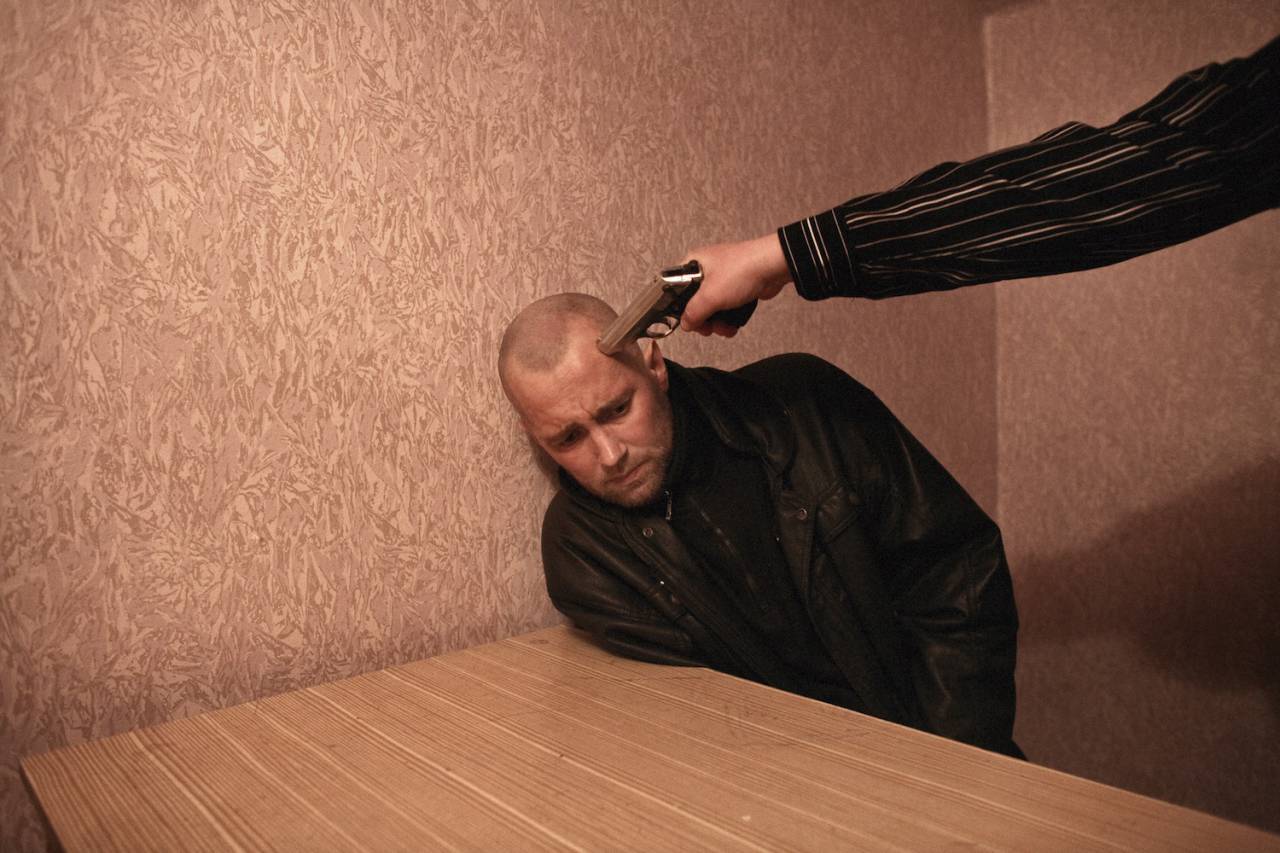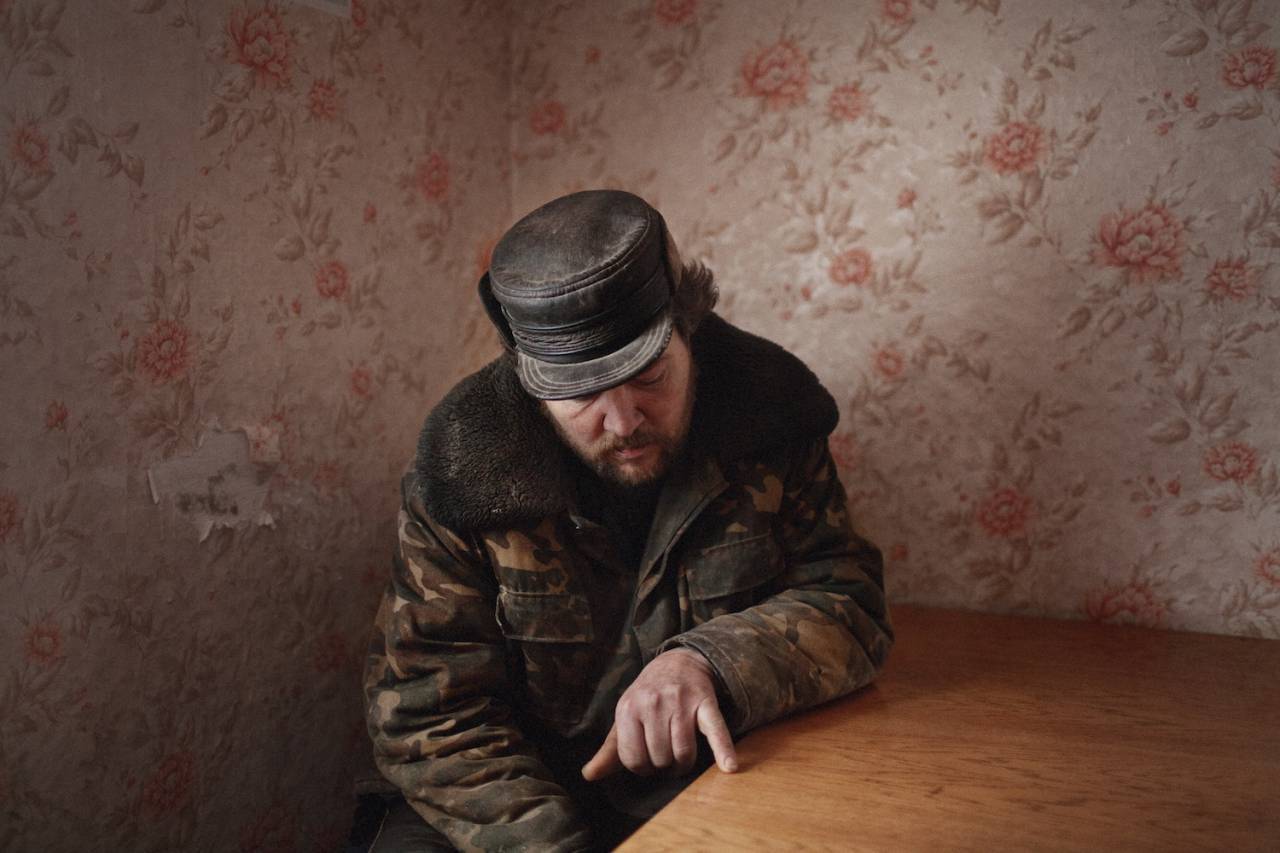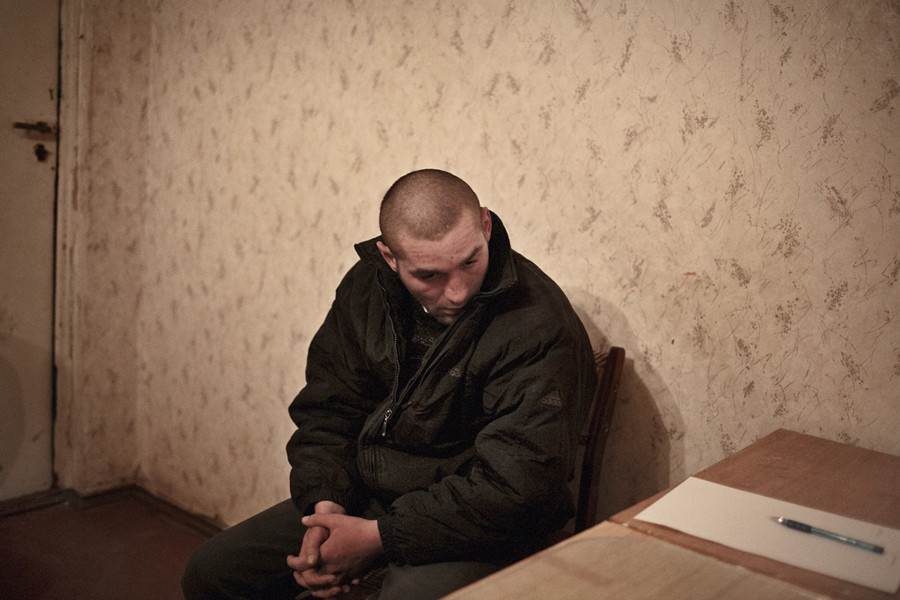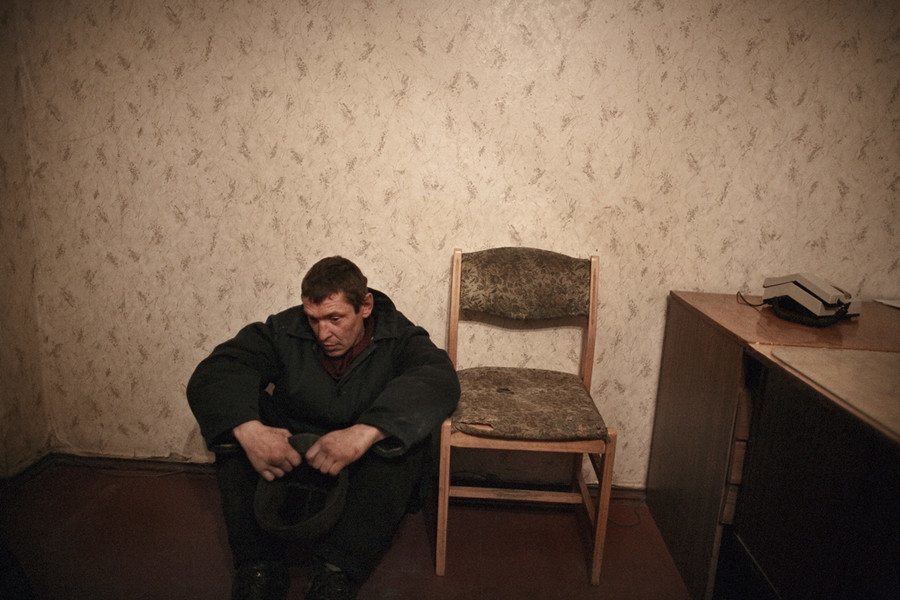“This is work not about Ukraine or Russia or even the former Soviet Union, but instead a way to see the modern State as a primitive and sacrificial rite” – Don Weber
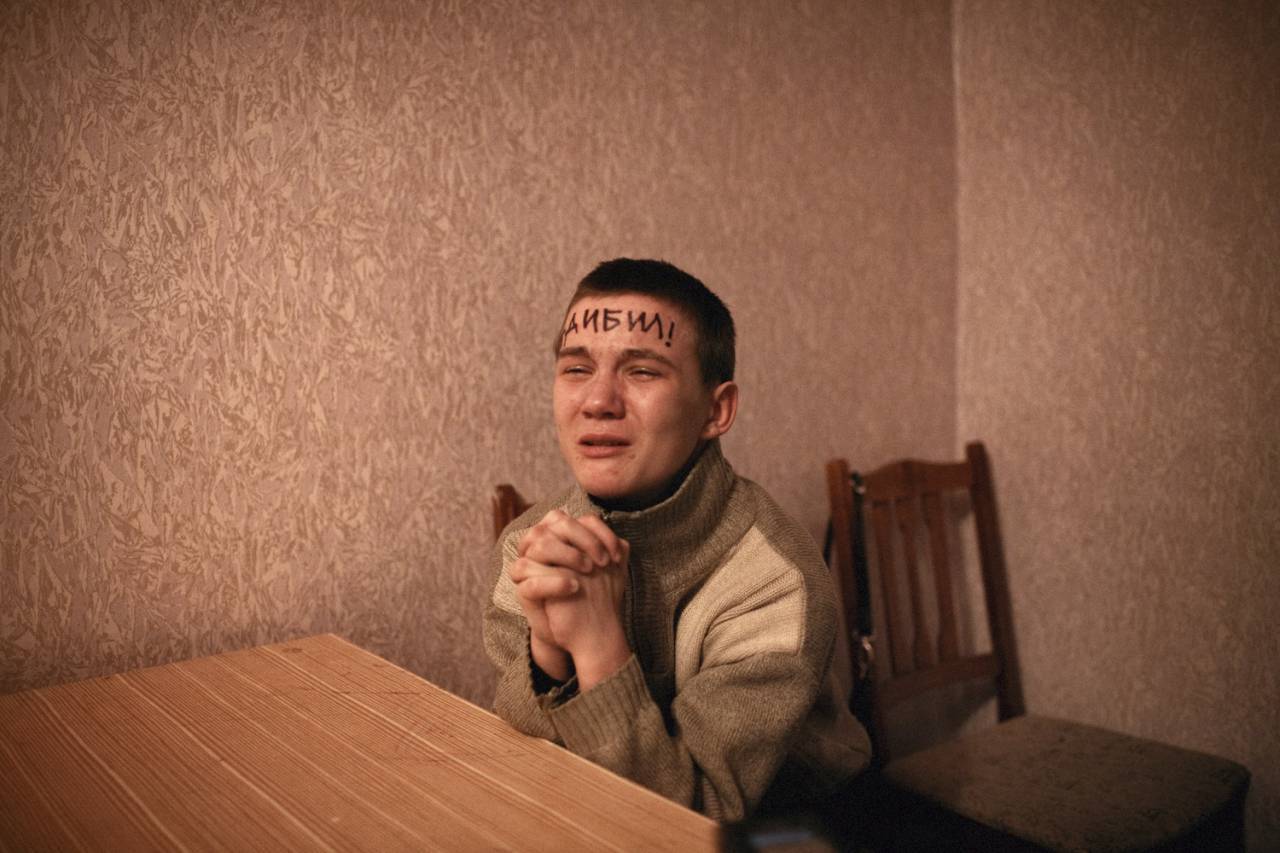
Vitaly, 15, a chronic petty thief, truant from school and violent towards his grandmother and mother, brought in for questioning again for his role in stealing car stereos. The police wrote “Ya Debil” on his forehead, meaning “I’m an imbecile” in Russian. Vitaly has not been in school for months and his crimes have escalated. Once he turns 16, Vitaly will be sentenced as an adult and will go to prison for any future crime. The police believe that their methods will help him turnaround and stop committing crime.
You’re looking at photographs of actual interrogations of suspected criminals in Ukraine. The subjects are not acting or re-enacting what they imagine went before. They were taken by Canadian photojournalist Donald Weber in 2010 and 2011 and compiled into his book Interrogations. Weber tells Lens Culture:
“I was lucky: on my very first trip to Ukraine during the Orange Revolution, I came across a fellow who became a friend and a fixer. Through him, I made contacts within the police services. It was actually over many years that the three of us (me, my “cultural guide”, and the police) established a relationship of trust to the point that they would consider allowing me to photograph the police interrogation process.
“The next challenge was to get permission from each of the people about to be interrogated for me to make photographs during that ordeal. Only about 20 percent of those people agreed to be photographed. So, after years of planning, it took further years to make this series of photographs.
“I remember first being shocked at some of the methods, but my friend said to me, ‘Don, you must understand that these are their methods of policing, this is how they’re taught.’
…
“What I strongly believe is that this is not a rogue set of cops; this is standard practice. It is what it is. It’s the utter terror of a wayward bureaucracy.”
Weber told Vice:
The intensity is not based on the crime. It’s based on the behavior of the accused. The guy with the gun to his head was a car thief. The reason why he got a gun pulled to his head was just because he was disrespectful and he wasn’t following the protocol of criminal-cop behavior. It’s a really interesting system that’s centuries old. The criminal hierarchy goes back a few hundred years in Slavic Europe and the cops are very much a part of that. They know where they sit. There’s a way of speak, and cops have a begrudging respect to a thief. For rapists and for murderers, not so much. If you’re a thief, regardless of what kind of thief you are, and you engage in the edict, you’ll be fine. They’ll question you and tell you what you need to do instead of sending you to prison. Basically, they’ll give you a warning and let you go. For me, it all came down to the understanding and the relationship between someone who has something and someone who doesn’t have anything.
Buy Interrogations here.
Would you like to support Flashbak?
Please consider making a donation to our site. We don't want to rely on ads to bring you the best of visual culture. You can also support us by signing up to our Mailing List. And you can also follow us on Facebook, Instagram and Twitter. For great art and culture delivered to your door, visit our shop.
